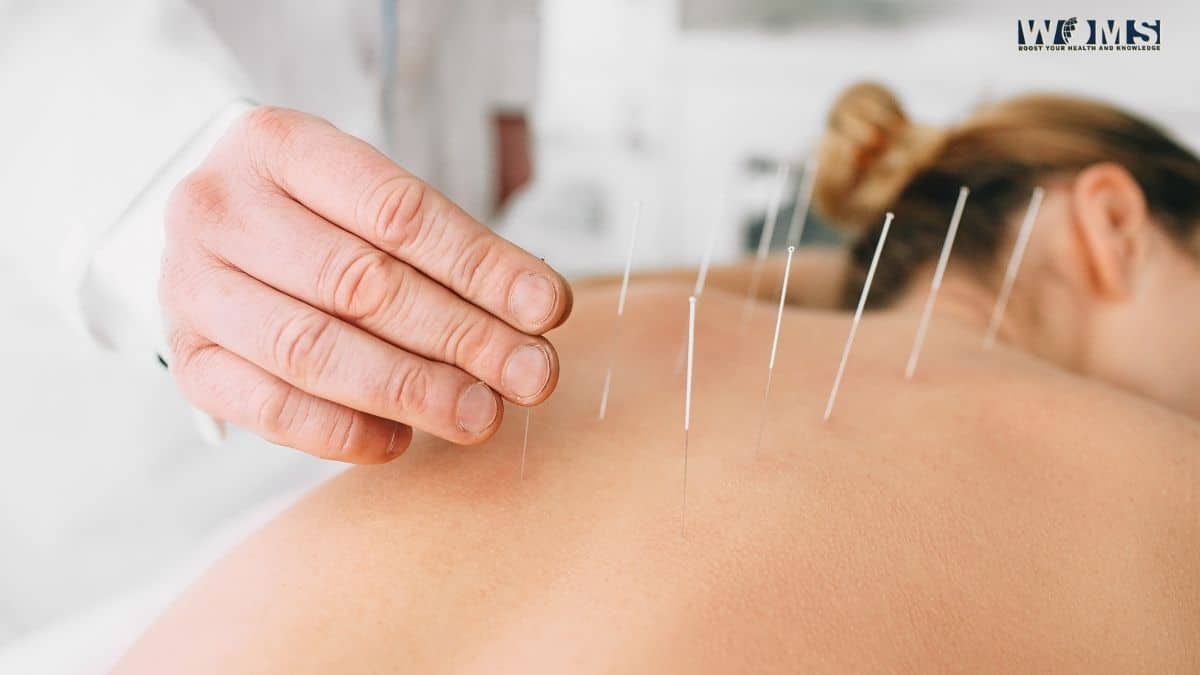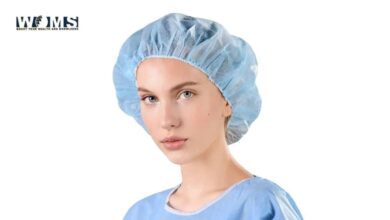Treating Headaches and Food Hypersensitivities with Acupuncture and Traditional Chinese Medicine

Whether caused by an injury, illness, stress, or even just too much caffeine, headaches can be painful and make it very difficult to function in your day-to-day life. While taking a pain reliever can help to reduce the pain in the short term, this fails to address the root cause of your headaches. By treating the specific underlying cause of your headache, patients can expect much more effective and sustainable results.
In this blog, we’re speaking with Elham Khodabandeloo, a licensed acupuncturist, and co-owner of California Neurohealth. In a series of questions and answers, she’ll help us learn more about the connection between food hypersensitivity and headaches and how acupuncture and suggested herbal formulas can be an effective form of treatment.
First off, What Causes Headaches?
There are many factors that contribute to headaches, which can make treating chronic headaches challenging without the help of a professional. The pain that you feel from a headache stems from signals received along nerves in your brain that come from a complex interaction between your blood vessels, nerves, and immune system.
Specific nerve cells, or neurons, located in your head and neck can send pain signals to your brain that will be perceived as a headache. These signals may be sent for a variety of reasons, including infection, stresses of all kinds, injury, exposure to chemicals, changes in PH, diet, and environmental factors.
What are the Different Types of Headaches?
Not every headache is the same. In fact, doctors have identified several different types of headaches that come with unique causes, symptoms, and treatments. Headaches are divided into two major categories: primary headaches and secondary headaches.
Primary headaches occur when the health issue at hand is the headache itself and is caused by over-activation of or dysfunction of pain-sensitive tissues in your head. Primary headaches are not symptoms of an underlying disease. This type of headache can be triggered by alcohol, foods; changes in sleep patterns, either too much or too little sleep, irregular eating patterns, stress, and poor posture.
Secondary headaches are symptoms of an underlying health issue such as problems with your immune system, digestive system, nervous system, vascular system, hormones, blood sugar regulation and problems with muscles and joints or even viral or bacterial infections such as sinusitis or COVID-19. When there is a headache pathway made, any malfunction in the body can be seen as stress and become a trigger.
Breaking this headache pathway is the first important job that regular acupuncture with an acupuncturist who is experienced in Neurological Disorders, can do.
Secondary headaches can commonly be caused by trauma to the head itself, such as concussions or TBI (tramatic brain injury), or less commonly caused by a tumor growing in the head. One should always rule out the most serious causes of secondary headaches first. There is a fallacy that these headaches tend to be more rare; however, it can and does happen that secondary headaches are misdiagnosed as primary for years before the serious underlying issues causing the headache are addressed.
What are the 3 Most Common Types of Primary Headaches?
- Tension Headaches: these feel like a mild to moderate dull, aching sensation like there is a tight band around the head and are commonly triggered by stress.
- Cluster headaches: cluster headaches occur in succession as clusters and can last for a matter of minutes or even hours and are characterized by a severe sharp, piercing pain, usually on one side and focused around the eyes. They can often be accompanied by nasal congestion, eye-watering, or swelling around the eye of the affected side. These clusters can last for weeks, months, and sometimes even more than one year.
- Migraine Headaches: usually one-sided throbbing headaches that are debilitating and are often accompanied by light or sound
sensitivity, nausea, vomiting, or sensitivity to motion and can last hours to days.
What are Common Triggers for Headaches?
- Caffeine: whether from coffee, tea, or other caffeinated drinks, consuming too much caffeine or too little, can cause headaches through mechanisms that affect blood vessel diameter or the release of chemicals called neurotransmitters.
- Hormonal Changes: Men, as well as women, may experience headaches related to hormonal fluctuations.
For men, low testosterone or “Low T” can be the cause of tension or other types of headaches including migraines. It’s a good idea to check the testosterone level, as it can be affected by overwork, stress, trauma (emotional and or physical), obesity, and prior use of anabolic steroids.
For women, fluctuations in hormones associated with the menstrual cycle can make them vulnerable to headaches, especially migraine headaches.
Quality care from a nurturing endocrinologist, which is a medical doctor specializing in disorders involving the hormonal system, can be life-changing in cases where hormonal changes are the cause of headaches.
Stressful life events can cause a shift in hormone function, especially thyroid function, that can cause headaches and are particularly difficult to diagnose.
During pregnancy, a woman’s body functions very differently and if one develops or has an aggravation of headaches at that time a visit to an ObGyn that cares enough to listen to her, is an essential step in treatment.
Poor sleep from insomnia or sleep deprivation is damaging to the brain and body. This damage can show up in the body’s ability to properly regulate hormones. Improved sleep quality and quantity can have a profound impact on hormonal issues that cause headaches. Acupuncture and herbal recommendations are powerful tools that helps the body adapt to stress, improve sleep, and help regulate hormones.
- Immune System Activation or Malfunction:
This can be caused by acute or chronic infection, exposure to recurrent or seasonal allergens and or food hypersensitivities. Inflammation due to immune system activation from infection or allergy can cause headaches. Inflammation of the digestive system from infection, allergy or eating things that do not agree with you can cause whole-body, systemic inflammation due to chemicals produced by immune cells.
These chemicals activate immune cells elsewhere causing inflammation and also directly affect nerve cells.
- Vascular System Malfunction:
This can be due to hyper or hypotension, pre-stroke, post-stroke or transient ischemic attack (TIA), or as workings of post-concussive syndrome. Vascular system malfunction can be a component of exertion headaches.
Due to the potentially catastrophic nature of this type of etiology, it is very important to be evaluated by a healthcare professional that makes time to properly diagnose, to be certain about the type and cause of your headache and not to self-diagnose. Acupuncture is an effective way to improve post-concussive and post-stroke syndromes and is always beneficial to be included in your rehabilitative therapies.
- Deficiency Headaches:
Traditional Chinese Medicine speaks about the etiology of disease and there is a physiologic state known as a deficiency that can cause headaches. Deficiency headaches can be caused by Blood Deficiency which can manifest as anemia, a decreased amount of blood cells, or more simply a decreased ability of the body to synthesize cells of all types. Other deficiencies include dehydration in addition to problems relating to hormones, such as disturbed metabolism, the example thyroid dysfunction, and poor blood sugar regulation.
- Medication Overuse Headaches:
Medication overuse headaches or rebound headaches are caused by repeated use of OTC (over the counter) or prescription medications used to treat headaches. These headaches are also related to withdrawal headaches if you regularly consume caffeine, cannabis, or alcohol.
What is Food Hypersensitivity?
Food hypersensitivity, which includes food intolerance and allergy, is an adverse reaction to food causing uncomfortable and less often, life-threatening symptoms. Food intolerance relates to the inability of one to digest food properly and often has a genetic correlation. It can involve the immune system and maybe a response that can be acquired.
The use of NSAIDs (Non Steroidal Anti-Inflammatory Drugs), or simply repeatedly eating foods that one is hypersensitive to, can result in a leaky gut. Leaky gut occurs when the lining of the gastrointestinal system or gut has become compromised and it allows partially digested food, microbes and toxins to penetrate into deeper tissues. This alters the balance of microbes in the gut and creates inflammation which has broad reaching effects in the body. The immune reaction that some patients have is slower to develop and the symptoms are not as explosive, but indeed just as damaging.
The process of identifying problematic foods can be difficult. Sometimes the symptoms one develops are more systemic and reflect the overall body. However, this can be misleading because there is a relative lack of gastrointestinal symptoms where the immune reaction is taking place. Some people have headaches or feel depressed or get eczema like a rash as a response to eating a food allergen that develops days after eating the insulting food, instead of them having gastrointestinal symptoms, such as acid reflux, and constipation, stomach pain, diarrhea, irritable bowel, or etc…
How Can You Treat Headaches Caused by Food Hypersensitivity?
While drugs and medication are commonly prescribed to treat digestive symptoms and/or headaches caused by food hypersensitivities, this is only a short-term answer. Reversing the root cause of leaky gut is a crucial step in eliminating headaches that may be caused by food hypersensitivities.
In the case of food intolerance causing leaky gut, getting a complete history, including a dietary record, and then performing specialized testing via a reputable lab, is the path of identifying genetic or acquired disorders of poor digestion. Unless someone eliminates foods that they cannot digest properly from their diet, and allow the gut to completely heal, they will forever have a perpetual health problem that will cause destruction to their body and make symptoms manifest eventually as the overall stresses of life’s ebb and flow.
How Do You Diagnose Food Hypersensitivity?
Food hypersensitivities are identified with the same approach of taking a complete history and dietary record, doing special tests done with a legitimate lab, and ultimately an elimination diet and challenge, where appropriate, for certainty. The correct types of therapies we use can help rebuild immune tolerance to foods and this process is essential in reversing leaky gut and resolving food hypersensitivity related headaches. Special consideration must be given to choosing a lab that knows how to test for, instead of something you pick up at a pharmacy stand or purchase on groupon, as an afterthought. You wouldn’t use a test from the 1960s to see if you have parasites, but you would use newer kits that show the up-to-date science to be more sensitive. False negatives can mean, you will not find the spy inside your own camp… and the damage can continue. We will recommend labs for food hypersensitivity according to our patient’s symptoms and will send patients to the proper website to pay the labs directly.
At California Neurohealth, our specialists utilize a range of non-drug treatments including education, behavioral modification, dietary intervention, acupuncture, herbal medicines, neuro-rehabilitation and non-invasive neuro-modulation to provide relief and treat the root cause of headaches and other sources of pain.
I learned quickly as a baby acupuncturist years ago that when I would acupuncture my headache points, within minutes a stomach ache would appear while the pain of the head would diminish. I would then needle the stomach ache points, and often this would cause the pain to simply volley between these two locations in the body, until it was lessened or gone.
Where does Acupuncture and recommended herbal medicines fit into the Treatment of Headaches?
At California Neurohealth, we use Acupuncture, and herbal medicines to break the headache pathways. Acupuncture is an effective form of treatment that reinforces the body’s natural healing processes.
Acupuncture supports the resolution of inflammation and reduces pain. It often works in layers and may bring up issues in the body that need attention. In this treatment, the acupuncturist will insert very thin sterile needles into “acupuncture points” that represent areas of the body with dense clusters of small nerves.
The insertion of a needle activates these nerves and stimulates various reflexes at the related level of the spinal cord that increase blood flow and affect the resting activity of the brain, organs, and muscles. The needles also affect related areas of the brain and in turn affects the body in a more global way via automatic communication at the level of the brainstem and other brain locations. The insertion of needles are essentially a non-catastrophic form of calculated trauma that promotes hormesis.
Hormesis is the principle that describes the adaptation of the body to moderate challenges through which the body improves it’s functionality and/or tolerance to more severe challenges. Exercise is itself a form of calculated trauma to the body that promotes hormesis. The specific location of these acupuncture points is what makes this hormetic response more conducive to healing.
Acupuncture has been used for thousands of years as a cornerstone of Oriental Medicine and has helped millions if not billions of individuals over these thousands of years to recover from sickness, injury and malfunction of the body. Acupuncture therapy can enhance sleep, reduce pain, resolve inflammation, promote growth, unleash speech, clear the mind, and improve organ function and overall health and sense of wellbeing.
Why Do I Need to See a Licensed Acupuncturist?
It’s important to distinguish the difference between acupuncture done by a Licensed Acupuncturist with a minimum of 3000 hours of full-time clinical training and medical acupuncture or dry needling performed by MDs, PTs, or DCs with weekend course training of 300 hours or less.
Here, we’re discussing acupuncture performed by a licensed acupuncturist who knows the philosophies of Oriental Medicine. Acupuncture and recommended herbs can be effective at treating primary and secondary headaches, but it does have their limits.
Acupuncture treatment by itself without addressing any of the environmental, behavioral, dietary or lifestyle factors will have a short term benefit of three days, as long as it takes for the “holes” produced by the needles to heal. This is why, in tandem with acupuncture treatment, I suggest herbal formulas from our U.S herbal companies that test for contaminants and offer pure pharmaceutical grade herbs. We also work with patients comprehensively to help them identify and address all the factors contributing to their headaches.
Conclusion
It is common for food hypersensitivity to be medically misdiagnosed. Quite often patients are instead told they have functional bowel disorders such as irritable bowel disorder(IBS) and are prescribed psychoactive medications such as antidepressants or anti-anxiety meds under the guise that their problem is psychological and stress or anxiety mediated. When headaches are also a symptom these patients may get sent to headache nurses or medical neurologists specializing in headaches.
Once dangerous causes of secondary headaches, such as aneurysms, embolisms, tumors or other catastrophic diseases are ruled out, medications for symptom management are prescribed. Not to be flippant but there is no diagnosis known as “medication deficiency” headaches.
The medical management of primary headaches is focused on abortive or preventive medications. Often, when patients do not tolerate the meds, botox injections are to be used indefinitely as long as the body can tolerate this type of treatment.
This is a stark contrast to the Oriental Medicine approach, where a health condition that is acquired can and should be resolved as part of a healthy healing response. The manifestation of a headache syndrome represents a change in body function that, in most instances, can be changed back to the healthier state it was in before the onset of painful headaches.
The experienced team at California Neurohealth along with your earnest participation, can identify the root cause of your headaches and develop a personalized treatment plan to help find relief from suffering and get back to the life you want to be living.
Contact us today or call at 805-488-1581 to learn more about how our multidisciplinary clinic can help your headaches, chronic pain, traumatic brain injury, or any neurological disorder and provide a holistic boost to your overall health and wellness.




